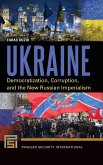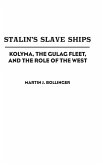Collins traces Communist strategy in the so-called Cold War from its ideological roots, through its successes, to the system's collapse. He demonstrates that Communist ideology made the Cold War inevitable, shaped Communist strategy and the resultant structure and purpose of Communist states, and assured that Soviet and other Communist states and party strategies would be subsets of a larger Communist world strategy. Collins challenges American perception and conduct of the Cold War as essentially a conflict between Great Powers in a bipolar world, demonstrating that it was in fact a real war, with its objective to create a Communist world. He illuminates the central role of internal strategy conflicts in fractionating the Communist world, and the direct linkage between the failure of Communist world strategy and the system's collapse. This is a major synthesis that will be of interest to scholars and researchers of international Communism and security issues as well as lay readers.
Hinweis: Dieser Artikel kann nur an eine deutsche Lieferadresse ausgeliefert werden.
Hinweis: Dieser Artikel kann nur an eine deutsche Lieferadresse ausgeliefert werden.








